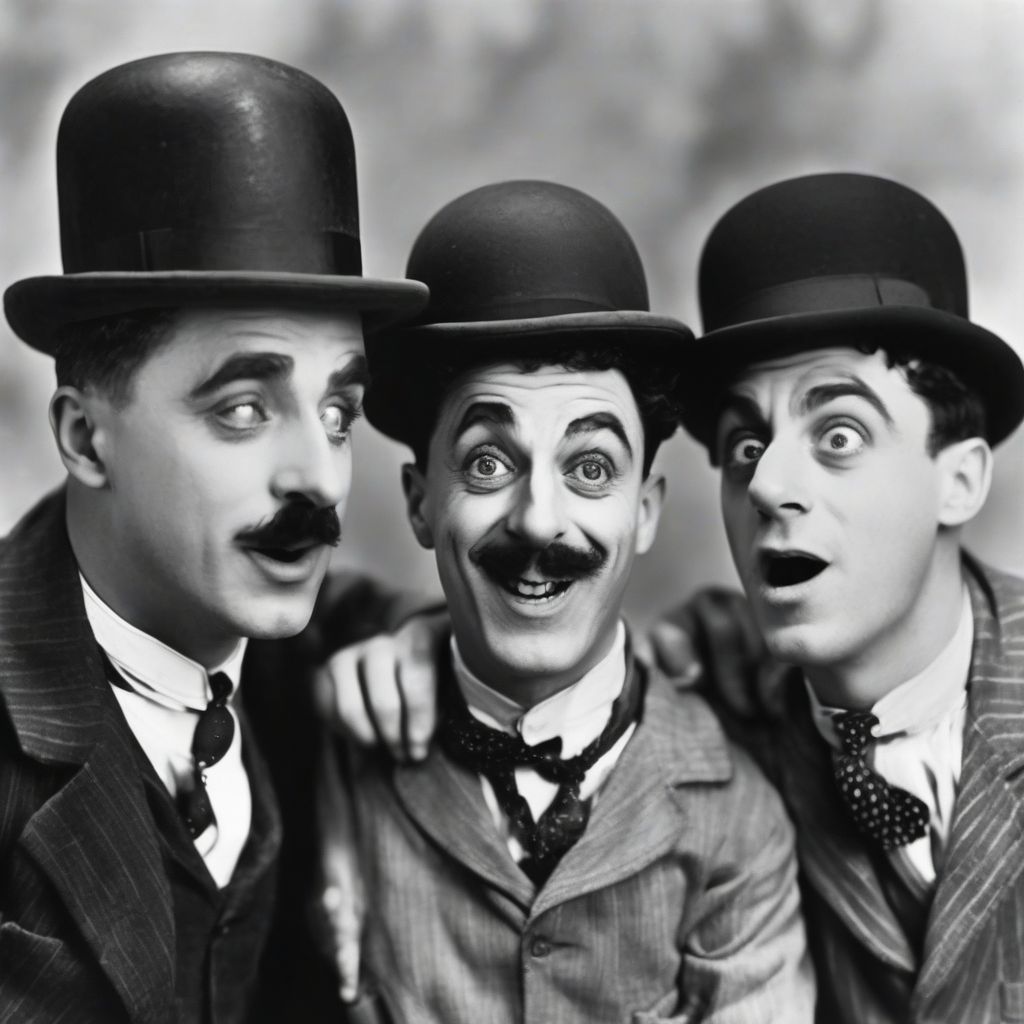Imagine a world without laughter, without those side-splitting moments that make life so much more enjoyable. It’s almost unthinkable, right? Thankfully, the world of comedy exists, and its evolution in film, particularly through the lens of classics, offers a fascinating and hilarious journey through time.
From the slapstick shenanigans of the silent era to the witty banter of screwball comedies, tracing this evolution reveals not just changing comedic styles but also a reflection of societal norms and cultural shifts. So, grab your popcorn, settle in, and let’s dive into the wonderful world of classic comedy.
The Silent Clowns: Laughter Beyond Words
The earliest days of film comedy were, quite literally, silent. Yet, these pioneers of laughter managed to build the very foundation of the genre. Think Charlie Chaplin with his iconic tramp character, Buster Keaton and his deadpan expressions, and Harold Lloyd’s thrilling stunts. Their genius lay in their physicality, their ability to elicit roars of laughter with a simple look, a pratfall, or a perfectly timed chase scene.
These silent films relied heavily on visual gags, slapstick, and often exaggerated movements to evoke laughter. Think of it like a live-action cartoon! Their humor transcended language barriers, making them global sensations.
 Silent Comedy Legends
Silent Comedy Legends
The Dawn of Talkies: Finding Humor in Dialogue
The advent of sound in the late 1920s brought about a seismic shift in comedy. Suddenly, comedians had a whole new tool at their disposal: dialogue. This era saw the rise of witty banter, clever wordplay, and the emergence of new comedic personas.
The Marx Brothers, with their anarchic energy and rapid-fire jokes, became superstars. Mae West charmed audiences with her risqué humor and double entendres, pushing the boundaries of what was considered acceptable. This era proved that laughter wasn’t just about physical gags; words could be equally funny.
Screwball Comedy: The Art of Fast-Talking Romance
The 1930s ushered in the golden age of screwball comedy, a subgenre that thrived on fast-talking dialogue, eccentric characters, and romantic misunderstandings. Think Cary Grant and Katharine Hepburn in “Bringing Up Baby” or “The Philadelphia Story,” where witty repartee and chaotic situations ruled the day.
Screwball comedies often featured strong, independent female characters who challenged societal expectations, reflecting the changing roles of women during this period. They were sophisticated, stylish, and undeniably funny.
From Slapstick to Satire: Post-War Comedy
The post-World War II era witnessed a shift towards more sophisticated humor, with satire and social commentary finding their way into comedic narratives. Films like “Some Like It Hot” (1959) tackled themes of gender and identity with a comedic touch, while Stanley Kubrick’s “Dr. Strangelove or: How I Learned to Stop Worrying and Love the Bomb” (1964) offered a darkly comedic take on Cold War paranoia.
This era also saw the rise of stand-up comedy influencing film. Comedians like Woody Allen began writing and directing their own films, bringing their unique brand of observational humor to the big screen.
The Legacy of Laughter: Classic Comedy’s Enduring Impact
Tracing the evolution of comedy in classic films is akin to uncovering layers of comedic brilliance, each era building upon the foundations laid by its predecessors. From the silent clowns who made us laugh without uttering a word to the sharp wit of screwball comedies and the satirical edge of post-war humor, these films continue to entertain and influence modern comedy.
The next time you find yourself chuckling along to a classic comedy, take a moment to appreciate the journey the genre has taken. It’s a testament to the power of laughter, a timeless and universal language that continues to bring joy across generations.
Your Turn to Explore
What are your favorite classic comedies, and what aspects of their humor resonate with you the most? Share your thoughts and join the conversation below!
[amazon bestseller=”classic comedy films”]
